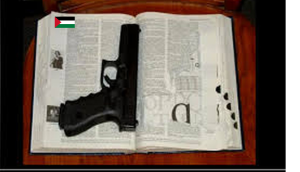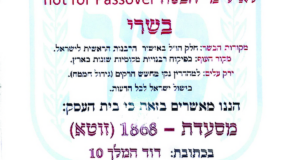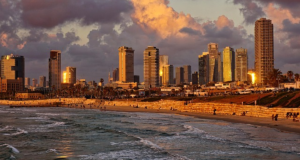“Most, if not all, of the non-weaponized nouns were no longer current by the ninenteenth century,” said researcher Aiosi Fifa.
 Tel Aviv, June 1 – Researchers at the Institute of Language are seeking the public’s help in finding concepts and objects that have not been been exploited by Palestinians and their supporters for use against Israel, the Institute’s web site announced Monday. They are offering 5,000 US dollars for the identification of such words.
Tel Aviv, June 1 – Researchers at the Institute of Language are seeking the public’s help in finding concepts and objects that have not been been exploited by Palestinians and their supporters for use against Israel, the Institute’s web site announced Monday. They are offering 5,000 US dollars for the identification of such words.
Initially part of an obscure research grant, the effort to locate such a noun hit a figurative brick wall (not an Apartheid Wall -ed.), and the postdoctoral researchers turned to the online community for assistance. The study, in an arena only marginally connected to the Israeli-Palestinian conflict, encountered obstacles and semantic difficulties stemming from the politicized use of every term it sought to use. The postdocs immediately grasped the linguistic significance of their predicament, and quickly secured a grant to explore whether there in fact remain any nouns that have not been weaponized by Palestinians.
“We found that even the simplest terms carried these associations,” explained lead researcher Dr. Fortyeight Borders. “Various forms require people to fill out a field called ‘Occupation,’ ‘State,’ and the like, and there wasn’t a person in the room who didn’t tense up at some point on any given page. We knew we had a phenomenon here.”
In the late 1960’s and early 1970’s Palestinians and allied groups perpetrated multiple hijackings of international flights, operations that served as the forerunner to today’s groups that hijack unrelated protest movements and social developments, explained Dr. Borders, including the appropriation of terminology and rhetoric from those struggles. “The American civil rights movement has little in common with the plight of the Palestinians beyond a couple of superficial similarities,” she said. “In fact the movement’s foremost leader, Dr. Martin Luther King, was as staunch a supporter of Israel as could be. But that didn’t stop Palestinian sympathizers from appropriating the racial tensions and violence in, for example, Ferguson and Baltimore, to make it about them. American race relations got weaponized in an unrelated conflict.”
The team of researchers has looked through hundreds of thousands of nouns over the last several weeks, but have so far found nouns not weaponized by Palestinians to be elusive, apart from obscure or obsolete terms. “Most, if not all, of the non-weaponized nouns were no longer current by the nineteenth century,” said researcher Aiosi Fifa. “And it is hardly restricted to the English language.”
Indeed, as the study so far demonstrates, Palestinian weaponization of nouns has occurred in all of the world’s major languages. “Sometimes it involves merely taking an existing word and applying it wrongly to Israeli actions,” explained Fifa, “such as the words ‘Apartheid’ or ‘genocide.’ No one who lived under South African white rule or Nazi oppression would confuse those regimes with the democratic Israeli system, but that doesn’t stop people who should know better from using such loaded terms.”
“But often it involves changing not the application, but the derivation, of a noun,” he continued. “A good example of that would be various place names in Israel. Vanishingly few place names there are originally Arabic, and many of the ones that do occur in Arabic are simply corruptions of an earlier term in Hebrew, Turkish, or Greek, with no apparent Arabic meaning. The weaponization happens by inventing forced Arabic etymologies in an effort to shore up the pedigree of Arabs’ late arrival in the land relative to that of Greek or Hebrew, at which point the term is wielded as a rhetorical cudgel in the campaign for the political rights of the ‘indigenous’ Palestinians, as if the Arabic term conveys precedence.”
“The best example of both phenomena is the term ‘Palestine’ itself, come to think of it,” interjected Borders. “They can’t even pronounce the original term from the Hebrew Bible properly.”



